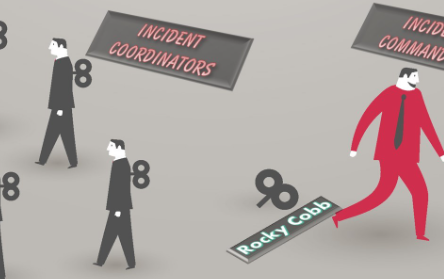
In the realm of emergency response and crisis management, the selection of incident commanders holds paramount importance. These individuals serve as the linchpin in coordinating responses to various incidents, ensuring swift and effective resolution. The process of choosing the right incident commanders is meticulous and crucial, influencing the outcome of critical situations. Let’s delve deeper into why the selection of incident commanders is done by the professionals.
Understanding Selection of Incident Commanders is Done by The Role of Incident Commanders
Before delving into the selection process, it’s essential to grasp the significance of incident commanders. These individuals are tasked with orchestrating response efforts during emergencies, ranging from natural disasters to industrial accidents. They lead diverse teams, allocate resources efficiently, and make critical decisions under pressure. Essentially, incident commanders are the pillars of stability amidst chaos, guiding responders towards a unified objective.
Read more Understanding Which of the following statements about emergency support functions (ESFs) is correct?
Why Professional Selection Matters
The phrase “selection of incident commanders is done by the” encapsulates the essence of professional expertise in this process. Unlike arbitrary appointments, professional selection ensures that individuals possess the requisite skills, experience, and temperament for the role. This meticulous approach minimizes the risk of incompetence or inadequacy in critical situations, safeguarding lives and property.
Criteria for Selection
Choosing incident commanders involves a comprehensive evaluation of candidates based on predetermined criteria. These criteria typically encompass a blend of technical proficiency, leadership acumen, communication skills, and situational awareness. Moreover, candidates undergo rigorous training and simulations to assess their readiness to handle diverse scenarios. By adhering to strict selection criteria, organizations mitigate risks and enhance the effectiveness of incident response efforts.
The Importance of Training and Development
The selection process extends beyond mere evaluation; it encompasses continuous training and development initiatives. Incident commanders undergo regular drills, workshops, and simulations to hone their skills and stay abreast of evolving best practices. This ongoing investment in professional development ensures that incident commanders remain poised and competent in high-pressure environments, fostering resilience and adaptability.
Conclusion
In conclusion, the selection of incident commanders is not a matter of chance; it’s a deliberate and strategic process executed by professionals. By adhering to stringent criteria and investing in training and development, organizations bolster their capacity to respond effectively to emergencies. The phrase “selection of incident commanders is done by the” underscores the importance of professional expertise in crisis management. Ultimately, the effectiveness of incident response efforts hinges on the capabilities and competency of those entrusted with leadership roles.
FAQs
1. Who is responsible for selecting incident commanders?
The responsibility for selecting incident commanders typically lies with organizations involved in emergency response, such as emergency management agencies, fire departments, or law enforcement agencies. These entities often have established protocols and criteria for the selection process.
2. What qualifications are required to become an incident commander?
Qualifications for incident commanders vary depending on the organization and the nature of the incidents they may encounter. However, common qualifications include experience in emergency response, leadership skills, communication proficiency, and familiarity with incident command systems (ICS) or similar frameworks.
3. How are incident commanders trained?
Incident commanders undergo extensive training, which may include classroom instruction, hands-on simulations, and participation in exercises and drills. Training programs aim to equip commanders with the knowledge, skills, and confidence needed to manage complex emergency situations effectively.
4. What role does experience play in the selection of incident commanders?
Experience is a crucial factor in the selection of incident commanders. Candidates with a proven track record in emergency response, including experience in leadership roles, are often preferred. However, organizations also recognize the value of ongoing training and professional development in enhancing the capabilities of incident commanders.
5. How often are incident commanders evaluated or reassessed?
Incident commanders are typically subject to regular evaluations and performance assessments. These evaluations may occur after real incidents, during training exercises, or as part of routine reviews. Feedback from evaluations helps identify areas for improvement and informs decisions regarding further training and development.
